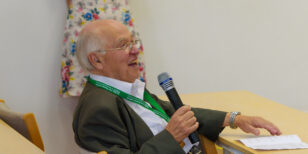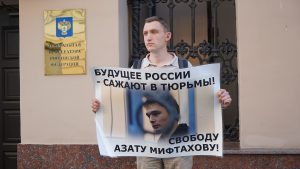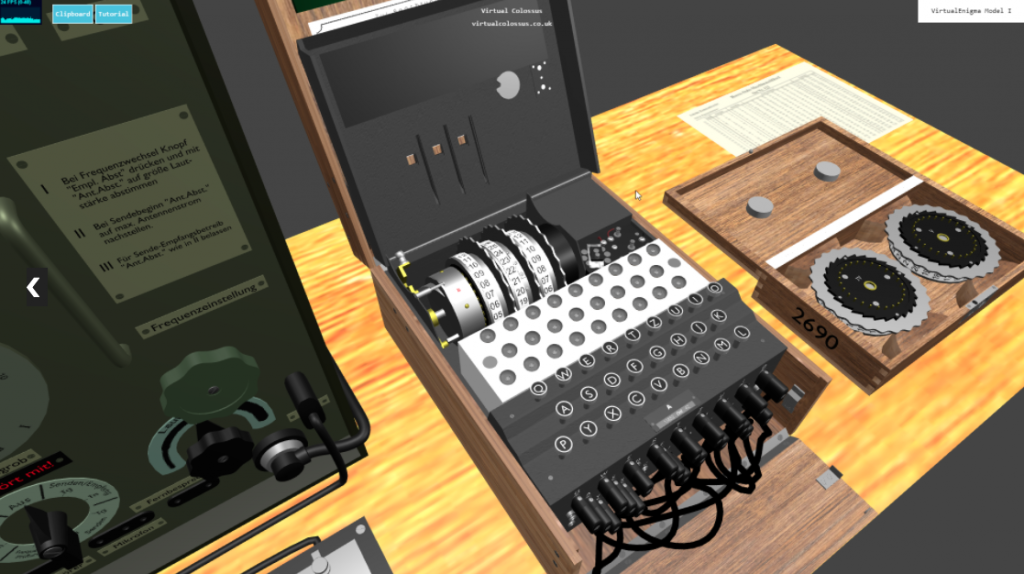Here’s a round-up of mathematical things that happened in June, and things you might want to know about that are happening in the future!
News
News In Brief
- Fields Medalist Peter Scholze has announced that his Liquid Tensor Experiment, a problem announced six months ago in a blog post that concerns condensed Abelian groups, has now reached the stage where proof assistance software has formally verified the hard part. Exciting! (via Jordan Ellenberg)
- YouTuber and PhD physicist Derek Muller (Veritasium) has recently been involved in a physics-off with UCLA professor Alexander Kusenko, when they disagreed over the explanation behind a physical phenomenon, which escalated to a $10,000 bet over who was right. Long story short, Veritasium won the bet (as covered in this IFLScience news story) and will be using the money to fund a science communication contest. If you’ve got an under-a-minute maths/science video you can post on YouTube or TikTok, you could win a prize of up to $5,000. Props to Derek for encouraging more STEM communication and promoting new talent!
- It’s been formally announced that Neil Sloane is stepping down as president of the OEIS – Russ Cox will take over presidential duties, while Sloane steps down to Chairman of the Board so he can dedicate more time to his writing projects (which we’re assured ‘naturally involve sequences’). Cox has been involved with the OEIS for over 25 years and has been a major contributor to the backend software that makes the site run, so he’s a safe pair of hands to take the project on.
- The eleven 2021 LMS Prize winners were announced at the Society’s Meeting on 2nd July, and the prizes recognise contributions to mathematics in a variety of areas. (via @LondMathSoc)
Alan Turing £50 note launches
On 23rd June the new Alan Turing £50 note was launched, featuring an image of Turing, a quote and various mathematical diagrams. Bletchley Park marked the occasion with a #Turing50Takeover, and the Bank of England has a whole page of info about the new polymer note on their website.
Meanwhile, in Turing-adjacent news, the National Museum of Computing has launched an online Virtual Enigma machine you can use to simulate the device behind the famous Enigma code, along with a video explaining the machine. This joins a host of other virtual historical computers they’ve built, including the Colossus that cracked the code, the Lorenz machine and even ERNIE the random number generator!
Claimed proof of Riemann Hypothesis
Another claimed proof of the Riemann Hypothesis, this time by Kumar Easwaran, emerged this month, and since like all big claims it would need thorough checking before acceptance by the mathematical community, there was some initial skepticism. (This didn’t stop the media from latching on to it as an exciting story though). Since claimed proofs of Riemann are like buses, many mathematicians don’t give them much attention, but Alex Kontorovich took the time to thoroughly debunk this one to save you the trouble.
If you want some actual Riemann Hypothesis news, here’s some: John Baez reports that Alain Connes and Caterina Consani have made some potential progress on part of the problem. In the words of Baez, “my interest is piqued”.
Interesting Links
Thuses is a website for mathematicians to publish and discuss ideas of interest to the mathematical community. It’s described as “a perfect place to share new approaches, slick proofs, and surprising counterexamples. A place for ‘folklore results’ that are considered known but don’t actually exist in literature. A place for everything in math that just has to be shared.” (via Piper H)
The Royal Society has published a set of papers on modelling that shaped the early COVID-19 pandemic response in the UK as a special journal issue that’s free to access.
The BSHM (British Society for the History of Mathematics) has launched the Bibby Awards in the History of Mathematics, for “contributions to the popularization of the history of mathematics in education”. Named after (and funded by the legacy of) the late BSHM member Neil Bibby, up to four awards of £400 can be made each academic year, in return for which holders are expected to give two free talks in schools and produce four digital resources (videos, PDFs or interactives) for the BSHM website. (via Sarah Hart)
Events

The Isaac Newton Institute in Cambridge is hosting The unity of mathematics: A conference in honour of Sir Michael Atiyah which will take place in September 2021 as a hybrid event with a mixture of in-person and virtual talks. The closing date for registration for physical participants is 8th August.
There’s just about still time to register for the People, Places, Practices History of Maths Conference (registration closes 9th July) taking place 12-15 July online (coordinated by the University of St. Andrews). With around 90 speakers contributing, the programme looks packed, and talks will be available to watch ahead, or at the specified time to be followed by a live Q&A.

Alexandre Borovik reports on his blog about Azat Miftakhov day, an event organised online by the Azat Miftakhov committee in solidarity with Azat Miftakhov – a graduate student from Moscow State University who was sentenced to six years in a medium-security penal colony and has already been arbitrarily detained by Russian state authorities for almost two and a half years. Fields medalist Cedric Villani made a speech at the event, and you can watch videos from the event on YouTube.


